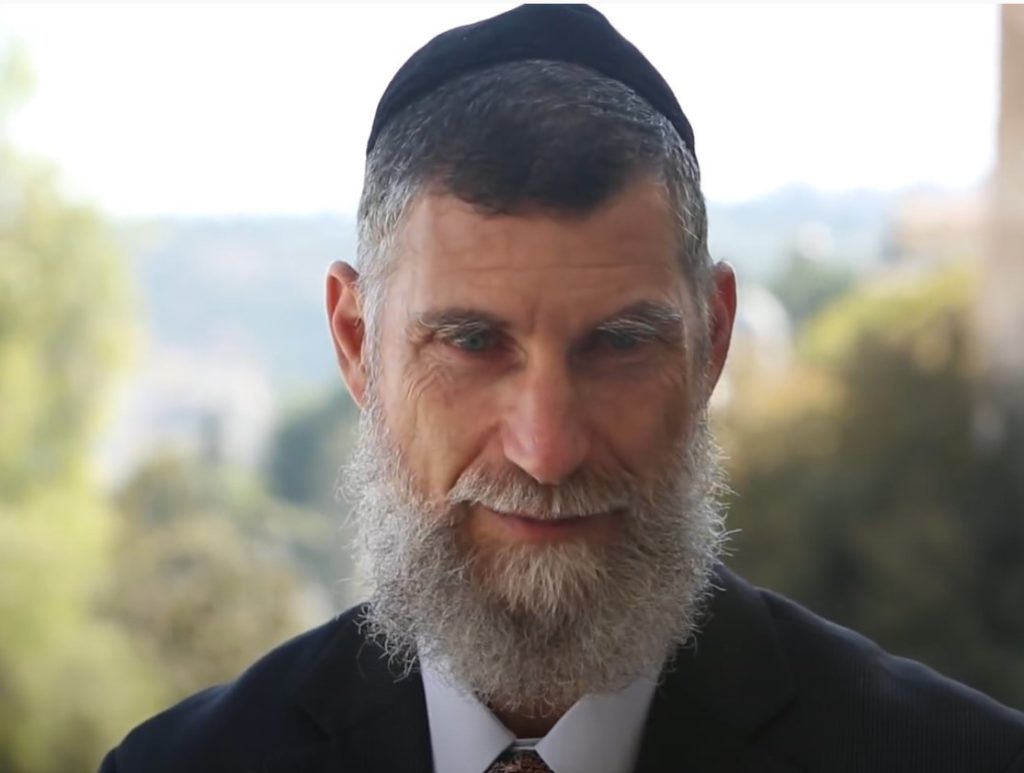
Rabbi Hanoch Teller is an Orthodox rabbi, popular author, lecturer, film producer, and historian living in Israel. With his ever-present style of humor unique only to him, Rabbi Teller has created his own podcast Teller from Jerusalem. He has lectured before audiences on five continents, in 40 American states, and 24 other countries.
Q: Tell us about your new podcast, Teller from Jerusalem. How did it get started?
At the beginning of the pandemic, I was hoping to have some kind of zoom session with my children as a way of keeping connected. Most of my children are married. Some live near us and others live overseas. I wanted to make the zoom sessions meaningful and substantial. Also, I combined my two strengths: my knowledge of history and my storytelling skills.
I wanted my children to learn to comprehend the story of the history of Israel – replete with joy and drama, laughter and pathos, and timeless messages that they will cherish for a lifetime.
The podcast Teller from Jerusalem is weekly, each episode no longer than 20-minutes. Three weeks in a row are devoted to the early struggle regarding the birth of the State of Israel and every fourth week is devoted to a character workshop.
The most recent episode in the history series is entitled, Never Trust Your Chambermaid; in the character series: In Heaven They Don’t Want Checks; They Want Receipts.
https://www.hanochteller.com/podcast/
Q: When did you write your first story?
I was a 17-year-old yeshiva student learning in a Jerusalem yeshivah and during the summer break, I wanted to do something productive. Through a connection, I got hooked up with a rabbi in Kiryat Shemona and stayed in his house, where I set up shop to teach some local Sephardi youngsters. On the second day there, I heard boys speaking English and saw them dribbling a basketball. I saw these Jewish college kids and asked them, “Do you want to learn about Judaism?” They said sure! I thought to myself they must be so bored isolated all the way up in Kiryat Shemona, if I would have taught basket weaving, it would have intrigued them.
The people running the program for the Americans were not keen on having “religious me” teaching their unaffiliated youth so the sessions took on the mystique of going underground.
I am still in touch with a few of these students. One of them is the foremost forensic psychiatrist in America. He and his wife became religious as a result of our interactions.
I wrote about my experience that summer. It was simultaneously published in two magazines and that – most unwittingly – launched my writing career. After the pieces were published people asked, “What are you writing next?” I wasn’t writing anything next.
But that too, began to change. Then people asked me to write about this and about that. I noticed that my style was more story-conducive (as opposed to reportage) so I started writing stories, giving birth to a whole new genre in Jewish literature. Subsequent to that I was requested to, “tell a story.”
Q: The Jewish Press described you as: “The King of the Storytellers and a modern-day globe-trotting Maggid.” The Jerusalem Post referred to you as: “The Shakespeare of the Yeshiva World.”
What inspires you?
Stories. Simple stories about someone who either does something unusually kind or a story about someone who overcomes his/her nature. I like people who achieve their goals.
I am blessed with a large family and am aware that my children, including my sons-and-daughters-in-law, look up to me and I don’t wish to disappoint them. I want to be worthy of that image. That inspires me.
Q: While you and your nine children were boarding an intercity bus in Jerusalem, what did the bus driver say to you?
“Why don’t you leave half of your children home?”
“I did.” I answered.
Another version of that story happened years ago when we were in Queens, NY for the summer and a German tourist said to me, “Aren’t you ashamed of yourself for having so many children in a world where there is a food and water shortage?” I said good point. When I have six million children, I will reconsider…
Q: Who do you admire the most?
My wife. I see the impact she has had on our children, keeping us all on the straight and narrow.
I also admire my father z”l. It is amazing how much of what I do seems to mirror what he did.
Marsi Tabak a”h edited at least 15 of my books. In the process she taught me a lot more than just how to polish my writing.
Q: How did you meet your wife?
I married the first girl I ever met, and basically all of my children have also. I wanted to get into the Mirrer Yeshiva. However, I was coming from a background that made me less prone to be admitted. A Torah scholar who was close to the Rosh Yeshiva offered to help me to get in the yeshiva. I didn’t know at the time that he had a hidden agenda.
The way it used to work in the Mir was that there was a hierarchy. The first-year students moved into apartments in the neighborhood. Eventually, when you were eligible to make it into the yeshivah building you started off in what was called the ‘dungeon.’ Over the years you climbed the floors until finally making it to the prestigious “fourth floor.” Even on this highly-vaunted floor there was the ‘presidential suite’ and in some fluke, as a rookie, I was placed there.
The Torah scholar who helped me to get into the yeshiva approached me with a shidduch suggestion and asked me “Are you interested in meeting my cousin?” I replied, “Thank you very much but I like my roommates; I don’t wish to switch.” He convinced me otherwise, and I married his cousin.
Q: What is your purpose in life?
To live up to my potential. The bar one has to achieve is fulfilling all that you are able to accomplish.
Q: Why did you write Heroic Children: Untold Stories of the Unconquerable and how long did it take?
The Holocaust is the most documented crime in history, but the one story that has gone untold is that of the children. I wished to rectify this gap so I traveled the world to interview child-survivors.
The stories from the children’s point of view are riveting and surprisingly uplifting. It took me about 14 years to write this book.
Rabbi Hanoch Teller’s books, including Heroic Children: Untold Stories of the Unconquerable are available at https://www.hanochteller.com/store/
